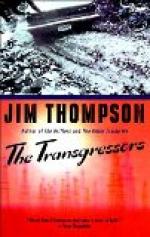The morning of the opening session of the convention finds the vast auditorium of the Music Hall where the meetings are to be held, crowded with spectators. It is impossible for one-tenth of those present to hear the speakers; they come not to hear so much as to breathe the surcharged air of the political storm which it is known will be fostered. The thin blood of the modern civilian is acted upon by less boisterous and gory scenes than those which sufficed to stir the audiences of the Roman circus; yet the human susceptibilities are the same in all ages, and differ only in expression. In the battle of voices, the audience will shout its approval or hiss its disapproval; at the pleasure of the throng a speaker can be silenced, his victory snatched from his very grasp.
Six thousand people are in their places by ten o’clock. The police have been compelled to shut the doors to exclude the crowds who would be satisfied merely to get inside of the building. A murmur fills the place, although no one is speaking above the normal tone; the combined sound resembles the distant boom of a cataract. Here and there in the galleries a splash of color indicates the presence of a woman. The value of feminine headgear is for once clearly demonstrated; it serves to differentiate the sexes.
On the floor of the auditorium the long avenues of chairs are vacant; a dozen men are busy arranging the location of the state delegations. Guidons bearing the names of the states are put in position. At the press tables, at the foot of the speakers’ platform, hundreds of reporters are industriously grinding out “copy” for their papers. A formidable army of messenger boys is lined up along the base of the platform. They are a reserve, to be used in case the telegraph service should break down.
Immediately in the rear of the speaker’s table is the indispensable adjunct of American politics, the brass band. At 10.15 o’clock the leader of the band gives a signal, and the “Star Spangled Banner” is played, six thousand voices joining in the best known phases and the chorus.
Now the delegates arrive. The New York contingent walks to its place in the middle of the hall. Ex-Senator Sharp is at their head, followed by the prominent county leaders. Their appearance is the signal for an outburst from the galleries. Cheers and hisses are about evenly divided. The conservatism of the New Yorkers makes them the bone of contention.
“They will try to rule this convention in the interests of Wall Street, as they did in the Democratic convention of ’96,” observes a man in the West gallery, to the man next to him. “The theory of majority rule that was good enough for the founders of the country, does not seem to hold much force now-a-days.”
“No,” replies the first speaker. “The rule of the majority has been repudiated. It would have been inimical to monopolies, so the Magnates have nullified it. They did the same thing with silver in ’73. There could be no money trust with bi-metalism.”




